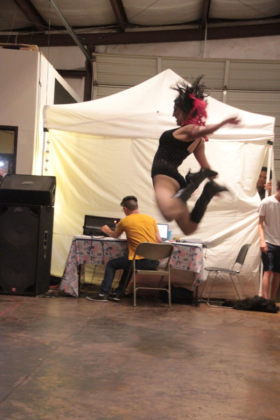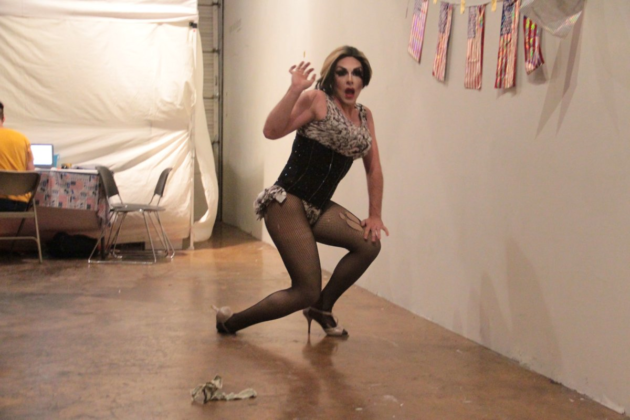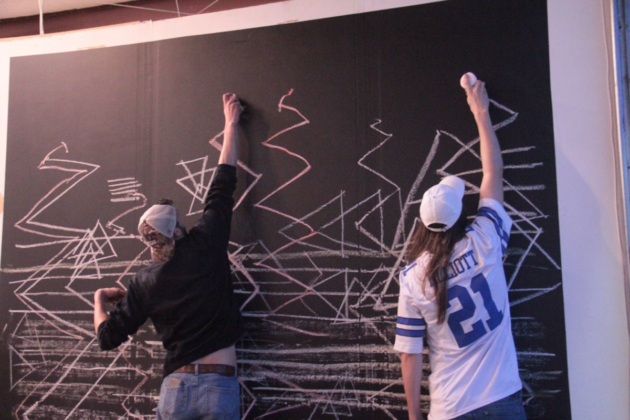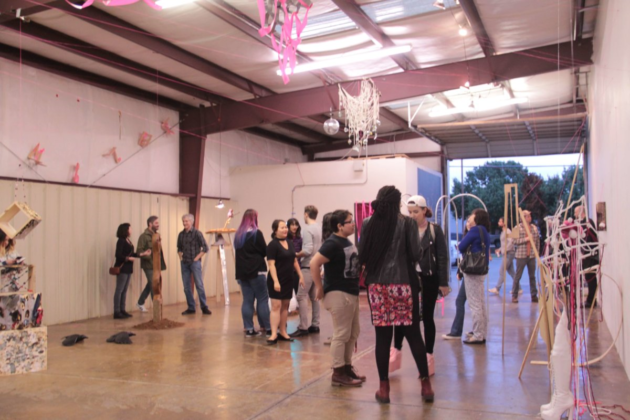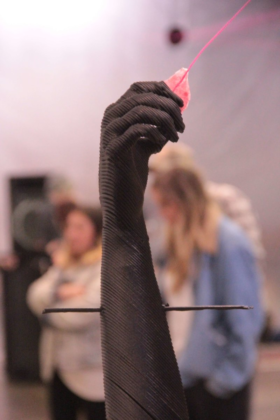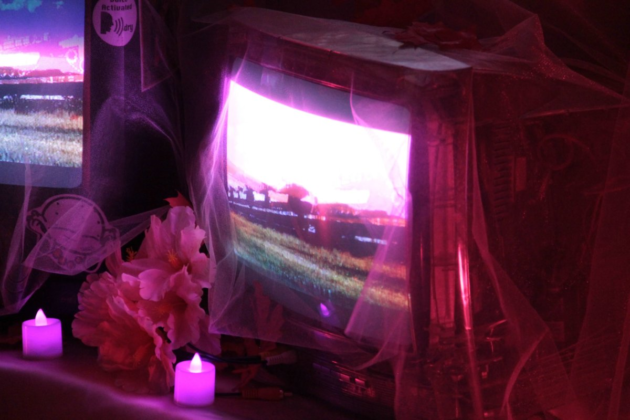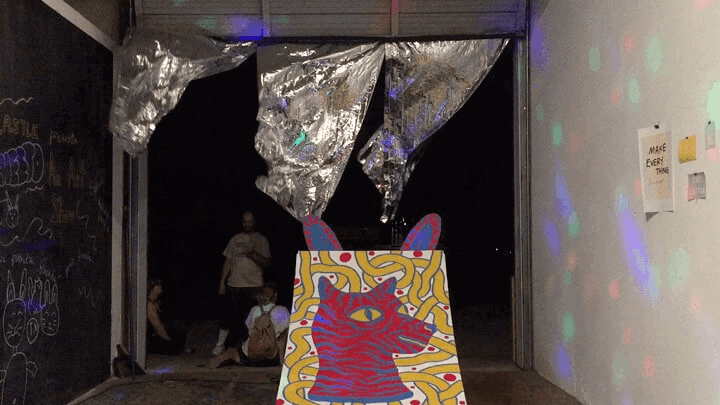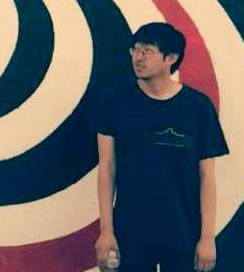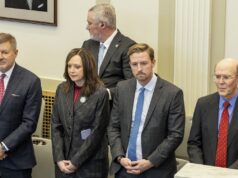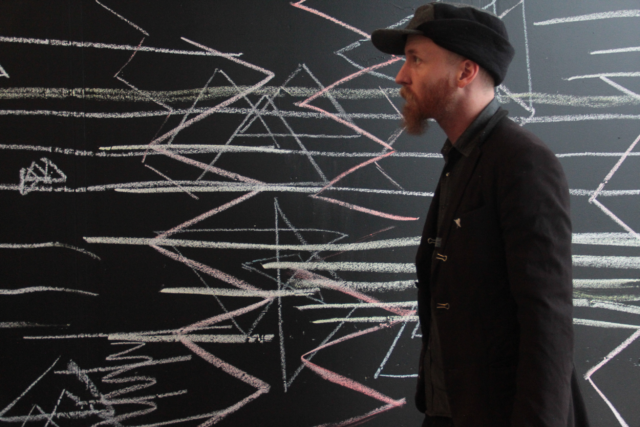
Without a bar, restaurant or neighboring gallery in sight, the art space Resonator is disconnected from both Norman’s nightlife and the public money that supports art around the city. Despite these obstacles, this do-it-yourself collective has fostered an audience from the fringes of Norman’s art scene and beyond to create, out of nothing, a haven for expression and opportunity. In keeping with its community’s needs, Resonator hosts everything from story jams to drag shows. Art installations, zine fests, video game tournaments and everything else fills the spaces between.
“One day you might see pink strings shooting out of a megaphone suspended in the air … Then skip ahead a week and there’s a stage where there wasn’t one before and metal and hip-hop acts are sharing the same bill,” said Helen Grant, who helps with weekly operations.
In an unassuming warehouse away from Campus Corner and Main Street’s crowds, this “little gallery that could” will celebrate its one-year anniversary party on Saturday. Not bad for a group of people who are essentially learning how to grow with their audience’s demands.
“Resonator is simply a platform,” said Resonator’s director, Eric Piper, about the space. “We put the artist in charge of their exhibition, workshop or event.
“Instead of trying to express an idea tucked away in a gallery under a blanket of procedures, we [give artists] the steering wheel and the entire building to engage the community in whatever way they [see] fit.”
Resonator rose from the ashes of Dope Chapel
Few may remember Piper for his last Norman endeavor, the grittier Dope Chapel that resided on Crawford next to Blu, a favorite watering hole among locals. Piper remembers the space for being a little more wild but said Resonator still shares a lot of philosophies with his old project — even if everyone involved in Resonator’s genesis did not come from there.
“Dope Chapel was an unbridled animal,” said Piper. “Resonator is more of a refined tool or piece of equipment. Dope Chapel was more of unfiltered emotion. The feeling when you become possessed to dance a dance you’ve never done or seen before.
“Working like this caused a lot of different things to happen. Some were amazing and good, others were bad and we wanted to avoid them,” Piper said. “We have edited out counterproductive parts of Dope Chapel.”
Artist: Indie venues offer more freedom
In August, Zach Davidson, practicing artist and adjunct professor at Butler University in Indiana, exhibited his whimsically subversive work at Resonator. He has roots in Norman in the form of parents and a sibling.
Davidson’s art tackles politics and the plight of Black America. He said artist-run spaces give others a lot of freedom to express themselves without having to deal with the bureaucracy that might exist in more established art spaces.
“I think smaller and newer artist-run venues permit a lot of freedom and flexibility with those exhibiting there that sometimes can cause conflict with operations that have too many people needing to confirm and appease decisions,” said Davidson.
Grant from Meow Wolf adds legitimacy
When pondering Resonator’s future, the word “legitimacy” comes to mind. The group seems to strive toward legitimacy: Moving forward, there are rumblings among leadership about trying to apply for non-profit status. Whether they achieve that by next year, Resonator will continue to align itself with other DIY spaces around the country while further cementing their status locally.
This year, Resonator applied for and received grant money from Meow Wolf, a similar art collective that grew out of New Mexico. Beginning in 2008, Meow Wolf has grown to the point to where it can give back financially to other art spaces across the country. Piper alluded that the grant money is a boon to Resonator’s morale as well as its funds.
“Their support is an endorsement that means a lot to those who look up to Meow Wolf,” he said.
Whatever happens with Resonator in the future and its funds, their purpose remains the same moving forward.
“The world is teeming with artists and passionate creators, inventors, and world changers,” Piper said. “Part of Resonator’s role in society is being radically inclusive, teaching people how to give themselves permission to be who they are and help society how they see fit.”









